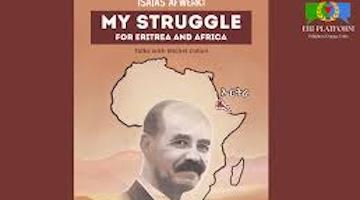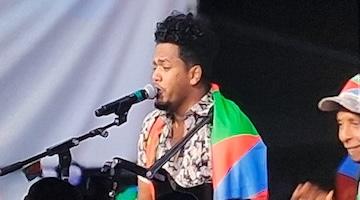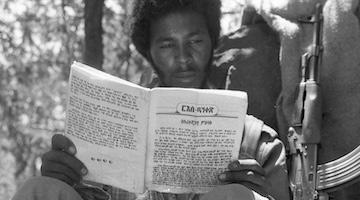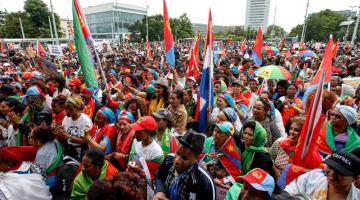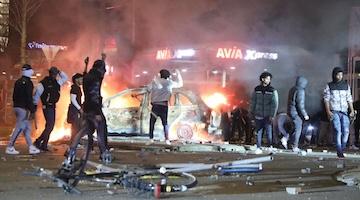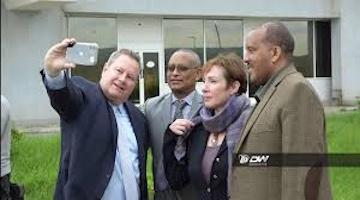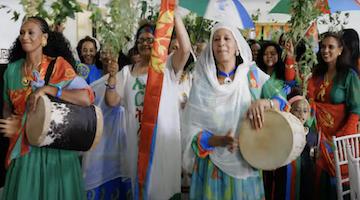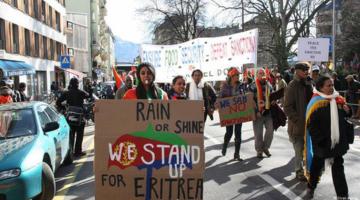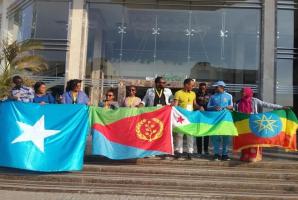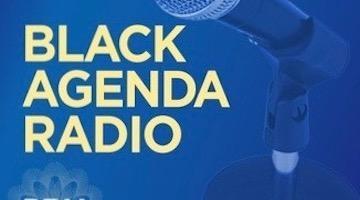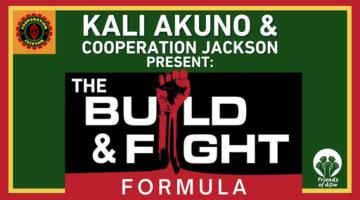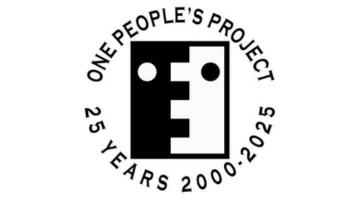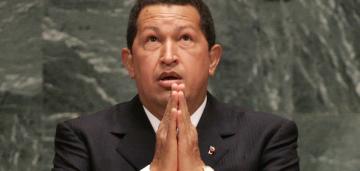Eritrea is an African success story. The nation provides for its peoples needs despite the impact of sanctions imposed by the west which are meant to undermine its sovereignty.
Originally published in Breakthrough News.
Eritrea is demonized for not conforming to the Washington Consensus at home and abroad. Criticisms in the Western media are typically decontextualized, sometimes fabricated, and almost always deployed to build a regime change narrative. Any statement contrary to that narrative, no matter how factual, is met with a barrage of attacks. Anything other than “Eritrea is pure evil” is treated as invented propaganda by the mainstream media and “experts.”
To see for myself, I spent two weeks in and around the capital city of Asmara and Massawa, Afabet, Keren and Nakfa, after visiting previously in December 2021 amid the conflict in Ethiopia. I was free to walk around, to talk to people on the streets, in coffee shops and restaurants. I’ve hardly seen all of Eritrea but I’ve seen enough to say confidently: what we’re consuming in the Western media is one-sided, unfair and incomplete.The kind of demonization visited upon Eritrea is somewhat exceptional, but its development challenges are not. Anyone familiar with the continent will recognize that Eritrea’s issues are Sub-Saharan Africa’s issues. Comparatively, Eritrea is also tackling many of them better than many with greater resources.
Eritrea has the highest life expectancy in its region, including Kenya.[1] It has the second lowest child mortality rate, above Uganda.][2 Concerning rural access to electricity, Eritrea is 10.5% above the Sub-Saharan African average.[3] Its literacy rate is higher than Zambia or Rwanda.[4] Education is free, and according to the African Development Bank “education and human capital formation” are “national priorities.”[5] 80% of people live within two hours (walking) of a healthcare facility, compared to 76% in Namibia which gained independence at roughly the same time.[6]
According to the UN, in the past few years in Eritrea “significant progress has been made in poverty reduction and the elimination of hunger” along with significant progress in “high-impact maternal, new-born child and adolescent health interventions.”[7]
Eritrea’s problems are treated exceptionally to hide the root of why Western nations have weaved a web of sanctions around her: that Eritrea stands up to the imperial consensus. In 2009, the US orchestrated devastating UN sanctions on Eritrea for refusing to accede to the dismemberment of Somalia. At a 2023 UN Human Rights Council meeting, Eritrea stuck up for Nicaragua as the US and others sought to foist sanctions on the Central American nation.[8]
Further, recently, Eritrea voted to reaffirm “the inalienable, permanent & unqualified right of the Palestinian people to self-determination.”[9] Most recently, Eritrea has also opposed every UN resolution designed to further the NATO war in Ukraine.[10]
These independent political actions on the global stage are what’s behind much of the Western invective, although this has been obfuscated in typical fashion by human rights rhetoric. The fact is that the West retains close allies across Africa and the whole Red Sea area with governments with terrible human rights records, and they are not treated the same way.
An objective view of the facts, and a view from the ground reveal another important, and mainly untold narrative. Beyond its international political statements, Eritrea also has a unique development strategy domestically that upsets and questions the Western-backed consensus for Africa. Despite remaining quite a poor country by global standards, just this effort to build an alternative economic arrangement gets it labeled as a rogue nation and puts it in Western crosshairs.
Developmental States
One major priority for the country is food self-sufficiency — a concept that was largely thrown out by neoliberal development economists in the 1980s, but is very much alive here. I saw first-hand a growing partnership between the Eritrean Produce and Livestock Corporation and the villages of Halhale with cattle, coffee, mangoes, grapefruits, avocados and cheese. The project sits at the intersection of import substitution and poverty alleviation. In Eritrea, chemical fertilizers are looked down on in favor of the natural variety to which the local livestock make a strong contribution. The farm uses a drip irrigation system that is proudly “Made in Eritrea.”
Two thousand people work full-time on the project and another 1,700 villagers work seasonally. Workers’ incomes are modest, but are in the top 50% of incomes in the country. The output of the farm is distributed in a few ways. One, it supplies food to major government priority projects, like many mining facilities, where, in the case of some meats, it has replaced imports. Produce is also distributed at cooperative stores at prices one villager described to me as “cheap.” Based on anecdotal conversations and my observations of other local prices, some goods sell at as much as 50% below market rate.
Projects like these serve an overall ecosystem that serves and creates local markets, helps insulate the country from high import bills and commodity prices, raises incomes in rural areas, and supports food security. It’s the exact type of project a young, underdeveloped country could only take on with significant state support, since it is the only local institution able to organize the resources and the manpower at the appropriate scale, and set reasonable prices.
Seeing this project up close gives real meaning to sanctions levied against the Red Sea Trading Corporation (RSTC) by the U.S. in 2021, and reveals the human dimension of these sanctions. RSTC plays a major role as a procurement company for the country, partnering with agencies like the Ministry of Agriculture to facilitate the negotiation, purchase and distribution of necessary elements needed for projects like Halhale. Sanctioning the RSTC means sanctioning the thousands of rural workers, making their work more difficult, and the untold number of consumers whose food prices are adversely affected.
Eritrea has organized itself to avoid many of the traps that bedevil African nations. Foreign companies must hire local employees at every level (unless no qualified person can be found). Investors also must source every possible commodity locally. In addition to paying royalties and taxes, most major investments are required to be joint ventures with Eritrean companies at (at least) a 60/40 split.11 This helps Eritrea capture a high amount of monetary value and human capital development from its engagements. In a world environment where the so-called “free market” is supposed to determine the allocation of everything, there are few countries of the Global South that retain such policies.
I also visited the Abdur Underutilized Marine Resources Processing Plant on the Red Sea Coast, which produces fertilizers from seaweed and fish proteins. They are producing 40,000 liters of fertilizer a month, aiming over two years to produce 500,000 liters a month to cover 32,000 acres of agricultural land. Coastal communities collect tons of seaweed for the production process, turning a previously underutilized local resource into a source of employment. These products have increased potato yields by 28%, chilies by 17% and increased the size of certain flowers by 20cm.
Initially the various fish by-products were chopped by hand. Now, they have mechanized choppers produced with locally available materials and designed by technicians at the Ministry of Marine Resources. The plant is planning to bring chickens on site, to use their waste to enhance the fertilizer, and provide food for employees. This is a second ecosystem where one project is creating sustainable agro-industrial supply chains, stimulating local industry, and increasing food security — all with indigenous resources.
Eritrea also prioritizes balancing out urban-rural divides. It’s the issue that fuels the creation of massive slums around cities across the Global South. Many countries talk about it but few do anything serious to address it, because it requires a strong state sector that can counteract the free market, implicitly prioritize the countryside over urban areas, where there will be far less capital formation, and put a kind of limit on urban development and standards of living so they don’t become totally inconsistent with the rest of the country.
Eritrea also has a well enforced system of internal passes and residence registration; this has been widely criticized as abusive in Western reports, but it follows from a form of state-led economic planning, which aims to prevent the anarchy of displacement and slumification.
In 2021, while falling short of its overall goals for increased access to clean water, Eritrea exceeded the goal for rural areas.12 Having the highest life expectancy in IGAD is a natural outgrowth of investments in healthcare, including training “barefoot doctors,” nominated by their own communities, to take basic medical services to places that are so remote they can only be reached on foot or camel.[13]
These policies help alleviate the rush from rural to urban areas that have created massive slums the world over. This is the political context behind the dry statistics and indicators. A typical Western observer might just note Eritrea’s relative poverty and underdevelopment and leave the story there. But Eritrea has developed a sovereign and state-led approach to marshal its limited resources to deliver core services better in scale, quality and spatial distribution than dozens of its sub-Saharan Africa peers who don’t face the challenges of sanctions and, often, have more resources.
As Delina Daniel, a marine engineering student, told me: “When I look at the Americans, I see capitalist monopolies, they develop their countries for their own personal profits. Here, it’s not like that.” (By the way, a “critical source of resilience,” according to the African Development Bank, includes “academic and research institutions producing well trained engineers.”[14])
Doing the most with what you have — “self-reliance” — is a cardinal principle of the Eritrean struggle. The Eritrean currency is the Nakfa, named after the mountain base where the EPLF armed struggle group was headquartered and which never succumbed to the various offensives. The lesson for many Eritreans is: even under siege, confronting great forces, and with whatever materials you can lay your hands on, you can survive and you can win.
Shifting Geopolitical Sands
Eritrea’s President Isaias Awfwerki recently shared a view that development is stifled by the Imperialist-led “cycle of containment,” focused on the containment of Russia and China, but also “containment of Eritrea,” which uses punishments and sanctions to limit independent countries.[15] Eritrea’s latent potential can only be unlocked by a “world order that enables everybody to share, cooperate…to grow…to work…mobilize resources and change quality of life.”[16]
Relatedly, Eritrea is embedded with 11 Sahelian nations, in a project providing solar electricity to 250 million people.[17] This, plus collaborations with the Arab Bank for Economic Development in Africa, will add 126 megawatts of electricity to the Eritrean grid between 2023-2027.[18] Similarly, Eritrean experts have been working with Sudanese authorities on “the largest water harvesting project in Darfur.”[19] Eritrea and Kenya recently instituted visa-free travel to capitalize on what Kenyan President Ruto called “enormous” potential in areas like renewable energy, agriculture, and education.[20]
The Eritrea-China strategic partnership secures critical income from mining, the provision of heavy equipment and investment in various sectors. A Chinese medical team supports Eritrea’s healthcare system and the Agricultural Technical Cooperation Project is training hundreds of Eritrean farmers in increasing productivity.[21]
Russia and Eritrea likewise have an “integrated cooperation program,” in areas including ports, renewable energy, agriculture, water management, social programs, mining, communications and media.”[22] India is a reliable provider of scholarships and, notably, Indian’s make up roughly half the faculty at the College of Engineering.
President Afwerki recently proposed Eritrea’s bilateral relations with Russia: “go beyond that,” asking “What would be the multilateral cooperation program between the Russian Federation and the Horn of Africa, between the Russian Federation and other parts of the continent?”[23]
Some Conclusions
No country can rise out of underdevelopment without a state-led economic strategy, and it is extremely hard to do without considerable international support. No nation can lift itself out of poverty while enmeshed in the imperialist (global) division of labor. History has likewise shown how development and growth in and of themselves are no solution if they do not take into account the attendant social consequences and new forms of devastating inequality. Eritrea has a state-led development strategy, is one of the most vocal countries advocating a multipolar world and places equitable growth over rapid development. All this remains overshadowed by a racist trope — the “North Korea of Africa” — which leans on “yellow peril” anti-communism and “heart of darkness” depictions of Asia and Africa.
Eritrea, like any country, has hardships. A principal dilemma facing the country is how it can develop without compromising its sovereignty and goals of equitable development. Eritrea famously rejects most foreign aid for development, which it says is far from “free money” but will only compromise its independence. It, like all developing nations that were formerly colonized, has its level of progress measured against a westernized “modernity” that was only reached in the West through slavery, colonialism and the massive exploitation of the working class, and which is only maintained through wars and monopoly rents. That’s not a model it can copy. Nor did it wage an armed struggle for independence — of which many Eritrean policymakers are veterans — just to open its resources and human capital up to the highest bidder, which is the main way to attract foreign investment. They are on an arduous march and it is no surprise that many utilize military metaphors to describe their development project.
There is little to no ostentatious wealth in the capital city of Asmara. On the one hand, the country has established a system of distribution of available resources that is far more equitable than its neighbors, which has allowed them to outperform many African peers in certain social indicators. On the other hand, this has, in the words of the government, “entailed onerous obligations” on the Eritrean people.[24] One key one is that internet access is very limited, although smartphones are ubiquitous, largely only available in internet cafes and some homes and businesses. These trade-offs are difficult, but are not zero sum — a different approach that simply distributes the “onerous obligations” in different ways. For instance you’re likely to live longer in Eritrea than Kenya, but far more likely to become a millionaire in Kenya. Equality and growth are difficult to achieve at the same time in the context of an imperialist political economy, especially one where none of the big powers have conducted global trade on the basis of solidarity.
Eritrea has been sanctioned for daring to challenge the status quo of the international order, and for repeatedly being a thorn in the side of the West in its machinations in sub-Saharan Africa. These sanctions are clearly a tool used to hobble and demonize Eritrea and other nations who hope to rearrange the global relationship of forces to break with neocolonialism. Closing down the discourse on Eritrea, simply dubbing it evil and moving on, is a key part of that process. As the above reflects, however, there is an entirely different narrative about Eritrea that still needs to be built and understood. It’s a story that matters not only to Eritreans but contributes to a larger debate on how Africa can, in the 21st century, lift itself out of 500 years of humiliation.
Sources
-
From 2021 World Bank Data. “Region” in this sense means the countries that make up the Intergovernmental Authority on Development (IGAD). https://data.worldbank.org; https://igad.int.
- Ibid.
- Ibid.
- World Bank, based on UNESCO Data, 2018, https://data.worldbank.org/indicator/SE.ADT.LITR.ZS?locations=ER
-
https://www.afdb.org/sites/default/files/documents/projects-and-operations/eritrea_-_interim_country_strategy_paper_2022-2024_and_2021_country_portfolio_performance_review_cppr.pdf#page23, p xxxiii
-
UN Eritrea, 2021 Annual Results Report, https://eritrea.un.org/sites/default/files/2022-04/2021%20UN%20Annual%20Country%20Results%20Report%20Eritrea.pdf; Country profile – Primary healthcare and family medicine in Namibia, National Institutes of Health, https://www.ncbi.nlm.nih.gov/pmc/articles/PMC7061223/
-
UN Eritrea, 2021 Annual Results Report, https://eritrea.un.org/sites/default/files/2022-04/2021%20UN%20Annual%20Country%20Results%20Report%20Eritrea.pdf
- https://kawsachunnews.com/these-countries-slammed-unhrc-for-its-attack-on-nicaragua
- https://english.wafa.ps/Pages/Details/135193; https://twitter.com/un_hrc/status/1643255123123089412?s=46&t=gkcdVtxRtvHViIGNpZgyhQ;
-
https://en.wikipedia.org/wiki/United_Nations_General_Assembly_Resolution_ES-11/2; https://en.wikipedia.org/wiki/United_Nations_General_Assembly_Resolution_ES-11/3; https://en.wikipedia.org/wiki/United_Nations_General_Assembly_Resolution_ES-11/4; https://en.wikipedia.org/wiki/United_Nations_General_Assembly_Resolution_ES-11/5; https://thehill.com/policy/international/3871761-these-6-countries-sided-with-russia-in-un-vote-on-ukraine-war/; https://africatimes.com/2022/03/02/african-nations-abstain-but-eritrea-casts-only-un-vote-against-russia-ukraine-resolution/
- Ann Garrison, “Notes from Eritrea, Part II” (Black Agenda Report, May 2022) https://www.blackagendareport.com/notes-eritrea-part-ii
-
10,489 people gained access to clean water in 2021, 62% of those gaining access were rural. https://eritrea.un.org/sites/default/files/2022-04/2021%20UN%20Annual%20Country%20Results%20Report%20Eritrea.pdf
-
So far there are 121 “barefoot doctors,” with 75 currently in training, with plans to increase the program to fill the gaps until better mobile and permanent medical facilities can be provided.
- https://www.afdb.org/en/documents/eritrea-dekemhare-30-mw-solar-pv-project-project-appraisal-report
- https://en.sputniknews.africa/20230603/exclusive-multilateral-russian-african-cooperation-a-necessity-says-eritrean-president-1059685652.html
- https://en.sputniknews.africa/20230603/exclusive-multilateral-russian-african-cooperation-a-necessity-says-eritrean-president-1059685652.html
- https://www.afdb.org/sites/default/files/news_documents/dtp-brochure-2021.pdf; https://www.afdb.org/en/documents/eritrea-dekemhare-30-mw-solar-pv-project-project-appraisal-report
-
https://www.afdb.org/en/documents/eritrea-dekemhare-30-mw-solar-pv-project-project-appraisal-report; https://igad.int/igad-and-afdb-collaborate-for-renewable-energy-for-the-region/
- https://suna-news.net/posts/Nimir:-Visit-of-Darfur-Governors-to-Eritrea-is-Successful
- https://www.president.go.ke/kenya-eritrea-permanently-abolish-visa-requirements-for-their-citizens/
-
http://english.news.cn/20230516/8ca311e7ce7342f39fa3b9c50fee0a4e/c.html; https://global.chinadaily.com.cn/a/202212/14/WS63992fdaa31057c47eba4541.html; https://shabait.com/2023/03/09/third-china-eritrea-agricultural-technical-cooperation-project-brings-promising-outcome/
- https://en.sputniknews.africa/20230603/exclusive-multilateral-russian-african-cooperation-a-necessity-says-eritrean-president-1059685652.html
- https://en.sputniknews.africa/20230603/exclusive-multilateral-russian-african-cooperation-a-necessity-says-eritrean-president-1059685652.html
- https://breakthroughnews.org/why-sanctions-on-eritrea-make-no-sense-2/
Eugene Puryear is a longtime journalist and community organizer currently-based in New York City. Eugene helped to organize a number of the large-scale demonstrations that took place against the continuing U.S. war and occupation of Iraq and Afghanistan, he was a key leader In the struggle to free the Jena Six in 2007, and a founder of the anti-gentrification group Justice First, the Jobs Not Jails coalition, DC Ferguson Movement and Stop Police Terror Project-D.C. Puryear is the author of the book Shackled and Chained: Mass Incarceration in Capitalist America, and spent five years in radio prior to helping found BT News.

